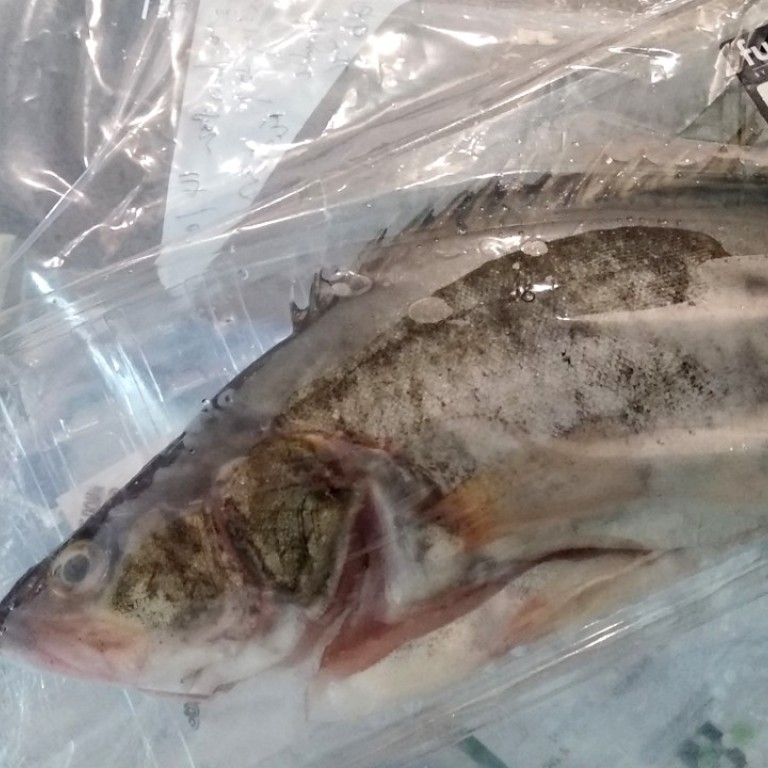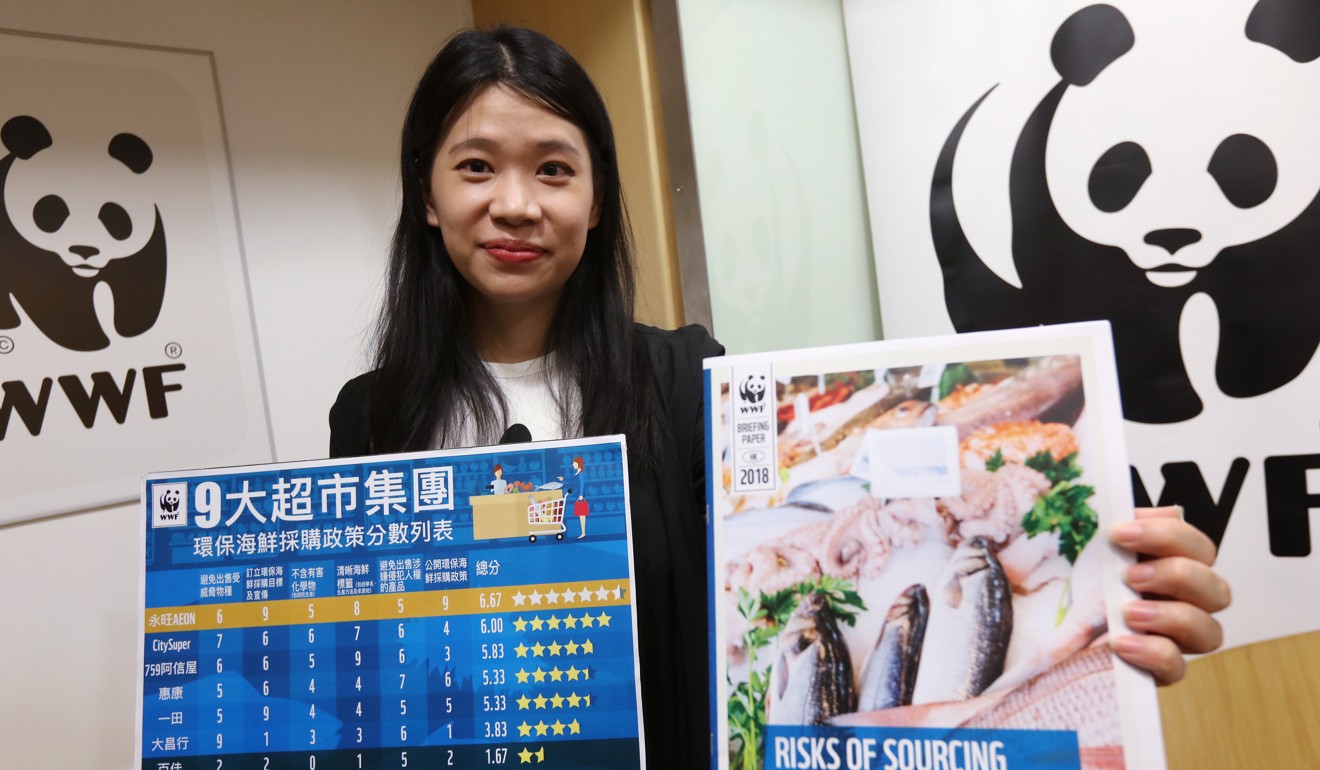
Fish samples in four A S Watson supermarkets found to contain cancer-causing chemicals: WWF-Hong Kong
Green group says it targeted chains in survey because they lack improvements in striving for sustainable seafood
Fish samples sold at four A S Watson supermarkets across Hong Kong were found to contain cancer-causing chemicals, with the levels in one batch exceeding European Union food safety standards by more than 2.5 times, according to a green group on Tuesday.
The findings by WWF-Hong Kong were part of a survey that involved 36 randomly selected samples of basa, mandarin fish and Japanese eel in 23 outlets across supermarket groups – A S Watson, China Resources Vanguard and Moretide Investments.
Five of the samples tested positive for the cancer-causing chemical malachite green (MG) or its major metabolite, leucomalachite green (LMG).

The use of these chemicals on fish for consumption is banned in Hong Kong, mainland China and the United States. Yet, a total of 7.18 micrograms per kilogram of LMG was found in a chilled mandarin fish product sold at a Taste supermarket in Tuen Mun. The EU food safety standard is 2 micrograms per kilogram.
Other affected samples were from a Japanese eel product from the same Taste outlet in Tuen Mun and three mandarin fish products from a Taste supermarket in Whampoa, a ParknShop superstore in Tsuen Wan and a Fusion store in Yuen Long respectively.
What is lurking in your margarine and will it really give you cancer?
The green group said most of the products tested were imports from the mainland.
WWF-Hong Kong said it targeted the three supermarket groups because they failed to show improvements in adopting the concept of sustainable seafood – “farmed in a manner that can meet today’s demand while not damaging the ecosystem” – or were simply reluctant to cooperate with the conservation group.
Malachite green is a chemical used in fish farms to treat fungal and parasitic infections. It is also an industrial dye. Studies in mice show it is toxic to the liver, can lead to thyroid abnormalities and harm fetal development. Both MG and LMG are potentially carcinogenic.
Jovy Chan Yuet-shan, WWF-Hong Kong senior programme officer for oceans sustainability, said the findings were “unacceptable”.
“This is a repeated offence by some supermarket brands. This not only violates food regulations, but also poses a risk to consumers’ health. All supermarkets need to take proactive actions to implement a sustainable seafood procurement policy to ensure seafood is sourced sustainably and with minimum environmental, social and legal risks,” Chan said.
This is a repeated offence by some supermarket brands. This not only violates food regulations, but also poses a risk to consumers’ health
Dr Thomas Lo Wai-hung from Polytechnic University said it was not uncommon to see the use of chemicals in fish farming.
“Although it is banned, some farmers might still use it illegally to boost productivity in fish farms because it is useful to cure infections,” said Lo, who is an associate professor at PolyU’s department of applied biology and chemical technology.
He added that according to guidelines provided by the World Health Organisation, products are deemed unsafe for consumption as long as they show residues of MG or LMG, as cancer risks increase with long-term consumption.
Since 2016, the green group has been evaluating nine major supermarket groups in the city to promote sustainable seafood. The groups are reviewed based on factors such as whether there are policies in place to deter the selling of a threatened species, proper labelling and details on products and a target to comply with sustainable standards.
A S Watson said all live seafood sold at its ParknShop stores was sourced from government-approved wholesale fish markets, including the concerned samples. It added that samples mentioned in the report were live and chilled fish sold in June, which were different batches of products currently selling in its stores.
